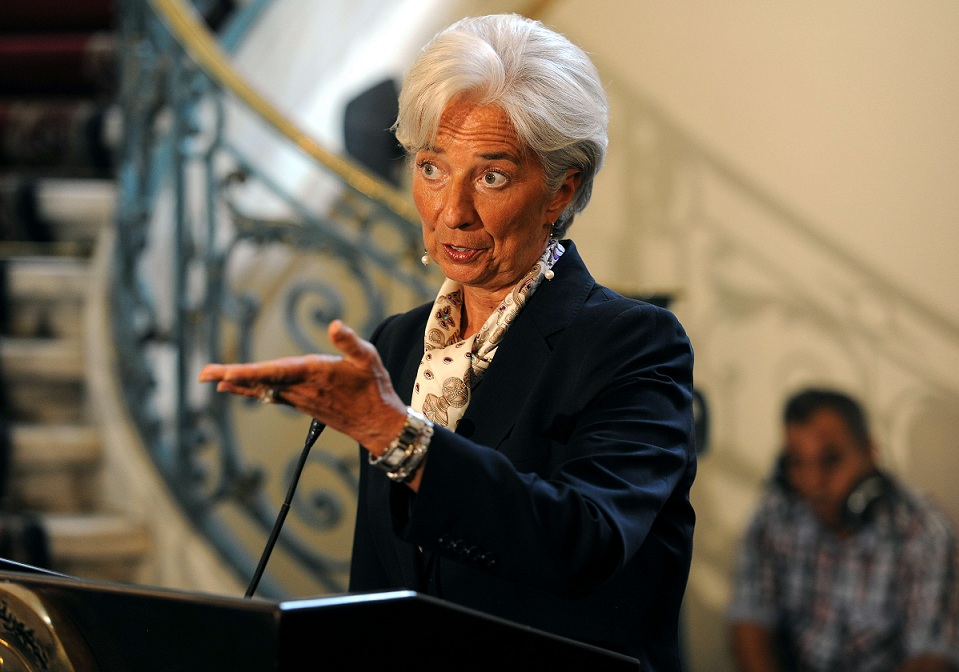By Sarah Daoud
CAIRO: “The Central Bank has a responsibility and the banking sector has a role, both need to discuss and figure out how to move forward and make progress,” says Mona Abdel Baki, a banking expert and assistant professor of economics at the American University in Cairo.
“They need to do something first and not just sit back and wait for something to happen,” she told Daily News Egypt.
Abdel Baki explained that the Central Bank of Egypt (CBE) should help the banking sector by giving incentives to encourage banks to lend, criticizing it for being “complacent” and maintaining a background role and being reactive instead of embracing a more proactive role.
All business sectors in Egypt have been affected by the aftermath of the collapse of former president Hosni Mubarak’s regime, including the country’s banking sector, known in recent years for its liquidity, tight monetary regulations and various reforms it has undergone.
The past decade saw a consolidation in the sector, as the number of banks in Egypt decreased from 57 to 39.
“The number of banks have decreased and only the strong banks have stayed open,” said Lamise Negm, vice president of Citibank Egypt.
“The banking sector is a mirror of the economy,” says Abdel Baki, explaining that when the economy is down, the banking sector goes down with it.
Both private and public banks were closed during the 18-day uprising that toppled Mubarak, then closed again for a week due to workers’ protests demanding wage parity.
“This was normal … in any revolution people think now is the time to voice concerns and speak out,” Abdel Baki said, adding that this has affected other sectors and slowed down the recovery process.
Both Abdel Baki and Negm agree that there is a liquidity crunch in the market that needs to be addressed urgently.
While rules and regulations handed down by the CBE apply to all banks in the country, the situation differs slightly between the public and private banks.
Abdel Baki explained that the state banks implicitly give the assurance that money is safe as opposed to private banks, adding that this is not a banking problem but an economic issue.
According to Negm, upon reopening, the local and public banks were most affected by the crowds and hassle due to the number of customers as well as their type of clientele.
“For us, we didn’t have the queues and only a few people came in for the sake of regaining confidence,” she said.
Although giving personal loans was put on hold at the start of the uprising due to the uncertainty, company loans were business as usual and were never interrupted, she said.
While many predicted a large outflow of currency as people transferred money out of the country, Negm noted that she saw only about 25 percent of what she had expected in terms of transfers and on the contrary, witnessed a surprising amount of deposits at the same time.
As far as loan-to-deposit ratio, Abdel Baki said she saw little change in the area but expects both to decline in the near future.
“The loan-to-deposit ratio is very low, it is less than 51 percent in comparison to other countries with the same income bracket,” she said.
She went on to explain that most loans currently go towards the household sector, meaning mortgages and car loans as opposed to, say, loans to start a business and in turn boost the economy.
“We are barely meeting Basel II and we need to move to Basel III or the banking sector will not be as credible,” added Abdel Baki.
The Basel Accord of 1988 establish international guidelines for a consistent measure of banks’ capital adequacy, thus ensuring that banks hold sufficient capital to support risk mitigate failure.
Basel II entails broader measures of risk, requiring banks to demonstrate that they have sound risk management practices that are publicly disclosed. Basel III solidifies the definition of capital and call for stronger conditions for managing liquidity.
Egypt was set to conclude the final phase of Basel II by this summer, but further reforms may be delayed due to the current circumstances.
While Abdel Baki commends the CBE for past reforms that led to consolidating the banking sector and following banking regulations which were well-capitalized and strong, she believes more measures can and need to be taken.
“There is a lack of strong internal governance in the Central Bank; a corporate government needs to be created and each bank should have its own unit to ensure objectivity and address issues such as remuneration,” said Abdel Baki.
Negm believes the sector is strong and has improved, and that now is the time to open more local banks.
“Banks need to get into serious business with investors and put customer deposits to better use, but in a way that is not just profitable for the banks but beneficial for the economy,” said Abdel Baki.
She previously spoke to DNE about workers’ wage demands, saying that any gaping disparity results in lower productivity levels among employees.
“One of the most important issues included in Basel III is limiting bank executive remuneration, regardless of the type of ownership of the bank,” she added.
She had also listed several changes that need to be undertaken immediately by the CBE, starting with a specific corporate governance law, as opposed to a “loose set of ambiguous and generic codes,” she said.
While the bank reform plan enacted since 2004 is “quite commendable,” with the lack of internal governance procedures, these reforms are “apt to fail in the future if the CBE governance becomes lenient.”
“Everyone knows that it does not suffice to have central bank regulation and external auditors, but internal governance will strike a balance between adequate risk exposure, acceptable levels of profitability and the buildup of a highly motivated staff and employees,” she added.







